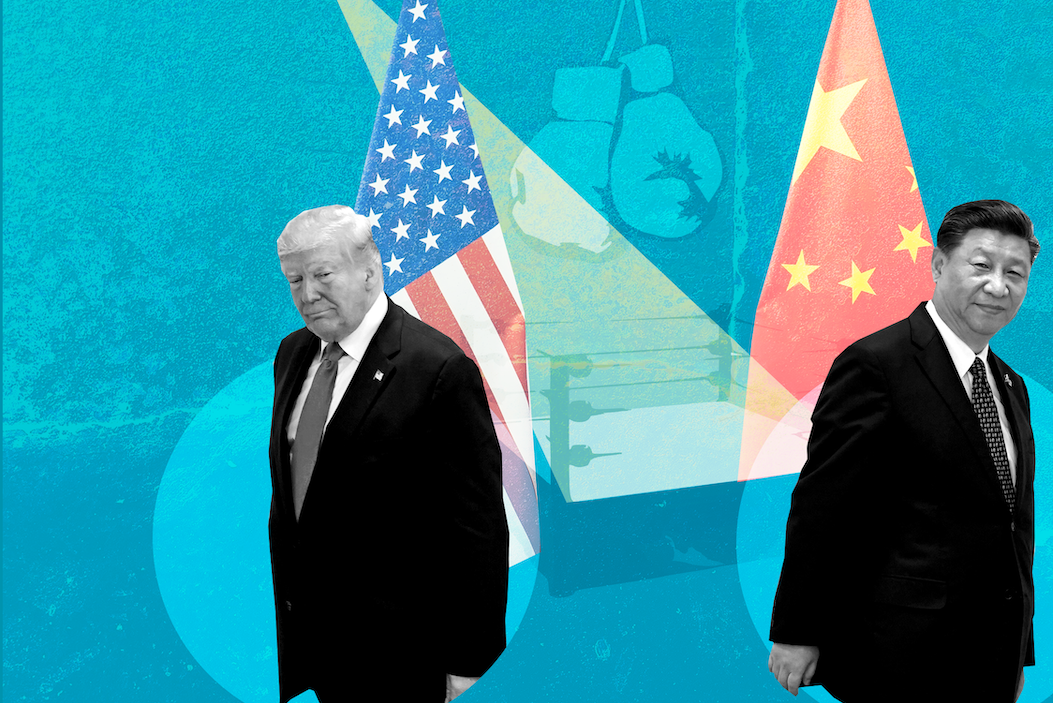Over the past eight days, the US-China relationship got notably hotter. None of the new developments detailed below is big enough by itself to kill hopes for better relations next year, but collectively they point in a dangerous direction.
US jabs over Hong Kong: On September 14, the US State Department issued a travel warning for the city because of what it calls China's "arbitrary enforcement of local laws" by police. The US is closely monitoring the case of 10 people detained by China while attempting to flee to Taiwan by boat. China's response to US criticism of its new security law in Hong Kong remains muted. That could change if relations deteriorate further.
Action on forced labor in Xinjiang: Also on September 14, US Customs and Border Protection issued import bans on computer parts, clothing, cotton, and hair products made at five facilities in China's Xinjiang region following accusations that they're made by slave labor. Xinjiang is home to most of China's Muslim Uighur ethnic minority, and Beijing has faced accusations from multiple countries that much of this population has been forced into internment camps. The economic impact of this action is limited, but China has reason to fear that other governments might follow the US' lead.
US strikes China's Belt and Road project: On September 15, the US Treasury Department unveiled sanctions against Union Development Group, a state-owned Chinese company, for the seizure and demolition of land in Cambodia as part of a construction project associated with China's Belt and Road Initiative. Here too the economic impact will be limited, but this is the first time the US has issued this type of sanction for actions directly related to China's signature international investment and development project.
US ban on China's TikTok and WeChat: On September 18, the Trump administration moved to block WeChat and TikTok from operating in the US on national security grounds, setting up a long legal battle. For now, a tentative deal involving US firms Oracle and Walmart will allow US downloads of TikTok to continue, but confusion within the administration over its terms could still kill it.
New tensions over Taiwan: On September 19, US Undersecretary of State Keith Krach visited Taiwan, which Beijing insists is a renegade Chinese province, to attend a memorial for former president Lee Teng-hui, and to discuss the opening of a new US-Taiwan Economic and Commercial Dialogue. Krach is the second notable US visitor to the island in two months. In both cases, Beijing responded with a show of force, this week by launching military exercises and sending 16 fighter jets and two bombers careening through Taiwan's airspace. The US is reportedly also considering the sale of long-range missiles to Taiwan in the coming weeks. China has responded with threats of sanctions against US companies.
China flashes a trade weapon: Beijing faces domestic pressure to push back harder on the tougher Trump administration line. On September 19, China's Commerce Ministry took a big step in that direction. By publishing a "Provisions on the Unreliable Entities List," the Chinese government issued a stern warning that further steps to block supplies of critical technologies to Chinese companies will draw retaliation against at least one high-profile US firm. More multinationals may find themselves caught in the crossfire.
A turning point? All this comes in the lead up to a US election that will prove pivotal for the world's most important bilateral relationship. How will the outcome change things? China would love to know.
The current Cold War logic suggests that if Democratic candidate Joe Biden wins, China may test him to look for signals of a change in US strategy. If President Trump is re-elected, these latest escalations might prove a sign of bigger fights to come.

